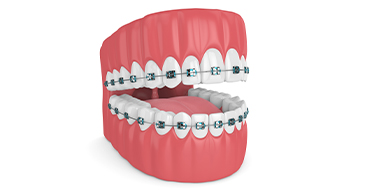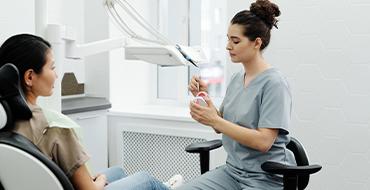Sleep disorders can affect people of any age or gender. Snoring is the most common sleep disorder. Many times, snoring affects your sleep patterns and quality of rest. Habitual snoring not only affects the person snoring but also impacts others around them.
If you experience morning headaches, fatigue, or difficulty concentrating, you may have interrupted sleep patterns associated with sleep apnea which is a dental sleep disorder.
Gentle Dental believes that teamwork between you, your physician, and your dentist is essential to designing and implementing an effective individualized sleep apnea treatment. We strive to provide a safe, trusted, and pleasant experience for each of our patients by making every procedure as comfortable as possible.



